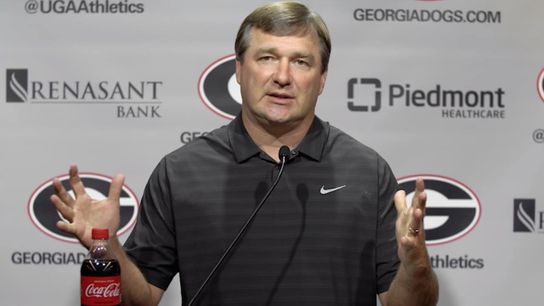Georgia did not win the national championship in 2017, but the Bulldogs showed enough to prove that one (or more) is on the way in the near future. After claiming the SEC championship, staging a thrilling Rose Bowl comeback and taking Alabama to overtime in the national championship game, Georgia made a significant investment in Kirby Smart's coaching staff in February, joining Ohio State and Clemson as the first programs to pay its assistants more than $6 million collectively.
* - Salary earned by 2017 staff member who is no longer at Georgia
Additionally, Georgia increased head strength coach Scott Sinclair's salary to $450,000 (a 50% raise) and will pay Sinclair's four assistants a total of $457,105.
On Wednesday, Georgia announced the executive committee of its athletic board will meet Thursday to "discuss and deliberate upon the employment terms and compensation of a public employee."
Smart was paid just modestly well in 2017 -- comparatively speaking, of course -- with a salary that placed him 23rd nationally and ninth in the SEC. He made just north of $5.1 million, $3.753 million in salary and $1.35 million in bonuses -- $400,000 for winning the SEC, $600,000 for reaching the CFP title game, $200,000 for a top-5 finish, $100,000 for winning the Maxwell Coach of the Year award and $50,000 for his SEC Coach of the Year honor.
A 40 percent raise -- thereby matching the one given to his coaching staff -- would place him at just $5.25 million in base salary, a number that wouldn't even place him in the top 10.
While I'll refrain from predicting a specific number, market precedent states Georgia will invest in Smart to the tune of (at least) $50 million and (at least) seven years. Auburn committed $49 million over seven years to keep Gus Malzahn from leaving for Arkansas, and Texas A&M pledged a fully guaranteed $75 million over 10 years to lure Jimbo Fisher away from Florida State.
While Georgia isn't fighting another school for its head coach's services, neither Gus nor Jimbo had as good a 2017 as Kirby did.
